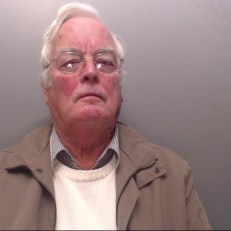
FOR DECADES Private Eye has hammered Britain’s national press in its celebrated Street of Shame column.
The magazine has pilloried the hypocrisy that often passes for news in papers owned by Rupert Murdoch and Lord Rothermere.
But now Parliament plans to curb the power of media billionaires, the Eye is supporting them.
Editor Ian Hislop has joined the chorus of protest at the proposed introduction of a key component of the bid to make newspapers more accountable.
Section 40 of the Crime and Courts Act 2013 makes publishers potentially liable for all costs in libel actions if they are not members of a regulator approved by the Press Recognition Panel (PRP).
The Panel was established by Royal Charter in 2013 following the Leveson Inquiry into press ethics.
The Royal Charter can only be amended by a two-thirds majority of both Houses of Parliament — and with the unanimous approval of the members of the Panel itself.
The Panel is not a regulator — its board only has the power recognise independent regulators who meet the conditions laid out in the Royal Charter.
This mechanism insulates regulators from the influence of politicians.

In October 2016 the Panel recognised the regulator Impress which is funded by charities controlled by the businessman Max Mosley.
Mosley plays no part in the running of the organisation.
The decision to recognise Impress makes it possible to introduce Section 40 and the government are now consulting on whether it should to do so.
Press Gang and its sister website Rebecca are both in the process of joining Impress.
No national publisher has signed up to Impress.
Instead, the Murdoch papers (Times, Sun and Sunday Times), the Daily Mail, Telegraph, Mirror and Express have created the Independent Press Standards Organisation (IPSO).
This is a reworking of the old Press Complaints Commissions — heavily discredited in the hacking scandal.
IPSO has not applied to the Press Recognition Panel to become a recognised regulator.
A series of newspapers — the Financial Times, Guardian, Observer, Independent, Evening Standard — have decided not to join either IPSO or Impress.
They have their own in-house arrangements for complaints.
Private Eye, which has traditionally refused to join any regulator, openly admits it has no code of conduct or written editorial guidelines.
It handles complaints internally and informally.
♦♦♦
IN THE week when IMPRESS was recognised Private Eye was celebrating a major victory.
Retired North Wales police superintendent Gordon Anglesea was gaoled in October 2016 on historic child abuse charges.
In the early 1990s the Eye, HTV, the Observer and the Independent on Sunday claimed Anglesea was a child abuser..
In 1994 Anglesea won a libel action and the four media companies paid him £375,000 in damages — and had to pay his legal costs as well as their own.
When Anglesea was gaoled, the Eye [28 October 2016) claimed Section 40 would make it “easier for any future Anglesea to sue publications like Private Eye with impunity.”

GORDON ANGLESEA
IT IS deeply ironic Private Eye should use the case of Gordon Anglesea to bolster its case against Section 40. In fact, having had its fingers burnt in the libel action in 1994, the Eye largely turned its back on the North Wales child abuse scandal. It was left to Rebecca, the sister website of Press Gang, to carry the torch of investigative journalism into this dark corner of British history. In 2010 Rebecca began publishing the results of a decade’s research, exposing the failure of the £14 million North Wales Child Abuse Tribunal to find out what really happened. For more on this campaign, see here.
Photo: National Crime Agency
This is, according to the Eye, because Section 40 states that if a publisher who is not a member of a recognised regulator “the court must award costs against the defendant.”
“In plain English,” the Eye continues, “even if we won the case, we would still have to pay all the bills.”
This is nonsense — and Eye editor Ian Hislop knows it.
Section 40 does indeed say “the court must award costs against the defendant” but it also immediately goes on to say:
“unless … it is just and equitable in all the circumstances of the case to award costs against the defendant.”
In other words, it depends on the circumstances and it is the judge who has the final say.
In a case where a newspaper or magazine wins a libel action against an alleged child abuser, it is inconceivable it would be forced to pay the paedophile’s legal bill.
The Eye’s biased portrayal of the act is the type of propaganda its “Street of Shame” column lampoons when it appears in the Daily Mail, Telegraph and the Sun ...
♦♦♦
PRIVATE EYE also subscribes to the view that Section 40 would stifle investigative journalism.
It has relaunched the £5,000 Paul Foot Award and describes it in these terms:
“In honour of Section 40 … Private Eye is once again awarding a prize for investigative or campaigning journalism in the memory of Paul Foot.”
In other words, the relaunching of the Paul Foot Award is also an attack on Section 40.
But Section 40 is not a threat to investigative journalism.
The part of Section 40 which the Eye misrepresented also has a similar clause protecting investigative journalists working for a recognised regulator.
 A recognised regulator has to have a cheap and efficient arbitration service to try to settle complaints.
A recognised regulator has to have a cheap and efficient arbitration service to try to settle complaints.
If a complainant could use the regulator’s arbitration service but chooses to go to court instead, then — even if he or she wins the case — the judge has the power to make them pay their own costs.
This is why Press Gang is joining Impress.
For more than 30 years editor Paddy French has been an investigative reporter.
He founded Rebecca as a magazine in 1973 and its Corruption Supplement saw many of the councillors and businessmen it exposed go to prison.
Several Rebecca investigations were picked up by the Sunday Times when Harry Evans was editor, before Rupert Murdoch bought the title.
French also worked as an independent TV producer making investigative programmes for ITV and BBC.
In 1994 he produced, with the late Ray Fitzwalter, the Channel 4 Dispatches programme Privateers on Parade about the de-nationalisation of Britain’s utilities.
Independent broadcasting has always been subject to regulation by a body created by but independent of Parliament.
“Throughout my career in television,” says French, “I was subject to regulation, first by the Independent Broadcasting Authority and then, after 2002, by Ofcom.”
“These were demanding regulators policed by in-house legal teams.”
“Far from stifling investigations, the effect was to produce bullet-proof programmes — maintaining high standards is one of the reasons I have never been successfully sued.”
“What is being proposed for newspapers is similar to the regime for broadcasters.”
“Press regulation will liberate investigative journalism and curb the arbitrary of billionaire proprietors.”
“It’s very sad that Private Eye — an absolutely essential critic of the mainstream press — should now be getting into bed with the worst of them.”
♦♦♦
FOR SOME months the anti-Section 40 propaganda machine has dominated the national debate.
But this is beginning to change.
The powerful cross-party House of Commons Culture, Media & Sport Committee recently responded to the government’s consultation on Section 40.
It criticised the media campaign against it:
“some of the arguments put forward were, in our view, unconvincing and misleading …”

SIR HARRY EVANS
THE MANCHESTER-BORN journalist edited the Sunday Times between 1967 and 1981.The paper was recognised as one of the world’s leading campaigning and investigative newspapers, famous for its investigative “Insight” team and its relentless campaign to get justice for the victims of the thalidomide scandal. Evans calls on the Guardian and the Financial Times to join Impress.
Photo: PA
It, too, rejects the argument Section 40 will have a “chilling effect” on investigative journalism:
“… the high-profile press campaign has also not set out the benefits which commencement of Section 40 would have in protecting publishers, editors and journalists if they were part of [a recognised regulator] and therefore reducing the chilling effect of high court costs on investigative journalism”
At the beginning of March, former Sunday Times editor Sir Harry Evans became a patron of Impress.
“Impress is a tremendous impetus and safeguard for investigative journalism,”he said.
Evans added:
“I support these proposals for a regulator that would be wholly independent of government or commercial interests, committed only to enhancing the standards of the British press.
“The dual purpose of discouraging abuses and resisting encroachments on an essential liberty is altogether necessary to restore public confidence.”
“It’s a necessary condition of the freedom of the press to act in the public interest.”
♦♦♦
Published: 11 March 2017
© Press Gang
♦♦♦
Note
See also the Private Eye page.
♦♦♦
NEXT
A STAB IN THE BACK
Press Gang examines the Private Eye coverage of the latest stage in the scandal of the unsolved 1987 murder of the private detective Daniel Morgan. This month four of the prime suspects lost their High Court action against the Metropolitan Police for maliciously prosecuting them in connection with the murder. One of them, a retired Scotland Yard detective, will receive substantial damages for misfeasance in public office. Press Gang believes four articles in the Eye’s investigative section “In The Back” on this case are seriously misleading …
♦♦♦
DONATIONS Investigative stories are expensive and time-consuming to produce. You can help by making a contribution. Just click on the logo
CORRECTIONS Please let us know if there are any mistakes in this article — they’ll be corrected as soon as possible.
RIGHT OF REPLY If you have been mentioned in this article and disagree with it, please let us have your comments. Provided your response is not defamatory we’ll add it to the article.
